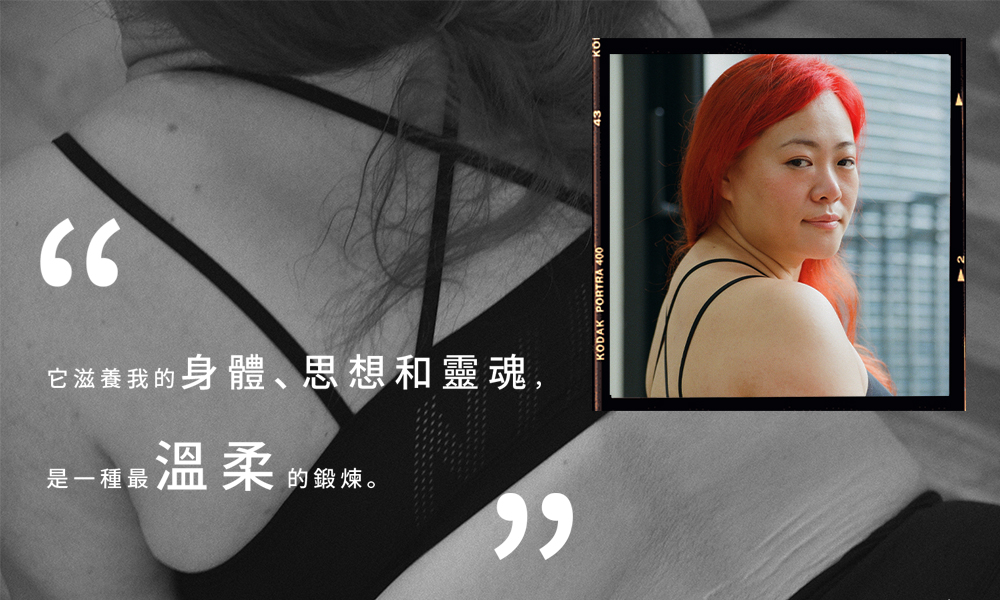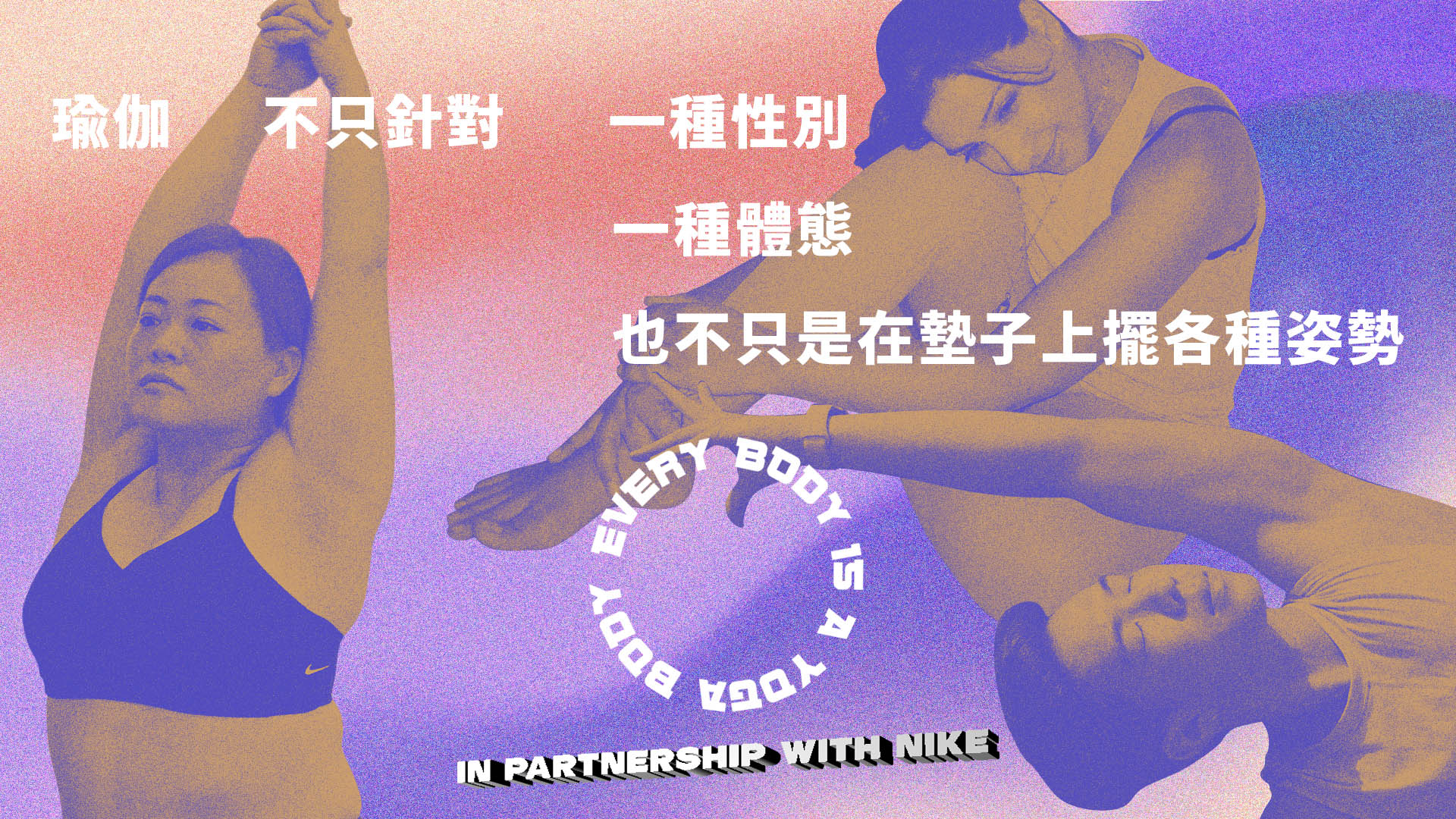
HF: HOKK Fabrica
B:Bertha
HF: 來一個簡單的自我介紹吧!
Briefly introduce yourself.
B: 我叫Bertha,是全職寫作人、身體自愛運動倡導者、網絡開發人員和活動統籌。從我小時候開始,生活香港於我而言是一種掙扎,但我在這可以發揮自己的創造力,也可以以此為生的地方。在過去的十年中,我一直一步步地在這座城市中,為與我有相同感受的人創造空間。
My name is Bertha, I am a full stack writer, body positivity advocate, web developer and event producer. Since I was young, I have been struggling to fitin in Hong Kong, somewhere I can be creative and express myself, also to make a living with it. In the past 10 years I have been making small steps to create a space in this city for people who feels the same as me.
HF: 有哪些面孔曾啟發過你?
Who are some of the people who have inspired you along your journey?
B: 女強人的代表Serena Williams、#Honormycurves創辦人Honorine、@Fatgirslhiking、Everybody Yoga的作者Jessymayn
HF: 運動在你生活擔當著什麼角色,它如何改變著你?
What is the role of sports in your life – how has it changed you as a person?
B: 學習運動對我來說是一輩子的事,現在回想,我確實走了很長一段路。我從恆常運動,學會堅持不懈和順應力。運動一點也不可怕,它對我們的健康非常有益;總的來說,我因為運動,變成一個更加正面的人。
Learning to do sports has been a lifelong process for me, looking back now from where I started I have definitely come a long way. I learned about perseverance and resilience by making exercise a habit and as a lifestyle choice I am able to make. I also learned that doing sport is not scary at all and it benefits our wellbeing so much, overall I have become a much more positive person because of it.
HF: 三個字形容做運動的自己。
Three words to describe ‘you’ working out or doing sports.
B: Calming the Chaos
HF: 用一個字形容你的身體。
Describe your body in one word and why.
B: 有力量的--我了解我的身心如何一為我做非常強大的事情。
Powerful – I understand how my mind and body are one and together they can do really powerful things for me.
HF: 何時對自己的身體感到最自信?
When do you feel the most body confident?
B: 當我登上火山頂上時,滿頭大汗。那時的我感到無敵。
When I am at the top of a volcano after a good hike all sweaty and I feel invincible
HF: ‘Every body is a yoga body’, 你如何看待這句話?
‘Every body is a yoga body’, what are your thoughts on this?
B: 除了無法移動身體的殘障人士,我相信不論你靈活與否,你都以瑜伽改善健康。 如果冥想也是瑜伽的一部分的話,那麼殘疾人也可以從中受益。所以對的,‘Every body is a yoga body’。
Apart from disabled folx who cannot possibly be moving their body, I believe as long as you have some mobility you can do yoga for your wellbeing. If meditation is also a part of doing yoga then I would say disabled folx can also be benefited by it so yes everybody is a yoga body.
HF: 瑜伽/運動是否改變了你對身體的感覺?
Has yoga/ sport changed the way you feel about your body?
B: 當我的肌肉非常緊繃和疼痛時,瑜伽無疑對我有很大幫助。所有伸展運動也讓我保持健康。做其他類型的運動使我的思維有著非常大的改變,幫助我更專注,並活在當下。
Yoga has definitely helped me out a great deal when I had to deal with really tense muscles that cause severe tension and pain on my body, all the stretches I learn to do have been maintaining my health for me as well. Doing other types of sports change my mindset a lot and it helps me focus and also learn to live in the moment.
HF: 在你看來,瑜伽是什麼? 瑜伽的目的是什麼?
What is yoga to you? What is the goal of yoga as you see it?
B: 對我來說,它是在劇烈運動後所需的平衡,它幫助我放鬆身心,並重新調整和重拾專注力。它使您克服生活裡的困難。它是滋養我的身體、思想和靈魂的一種最溫柔的運動。
Yoga is the yin to my yang, to me it is the balance needed after an intense workout, it helps relax my mind and to recalibrate and refocus. It keeps your head above the water in life.It is the ultimate soft and gentle exercise to nurture my body, mind and soul.
HF: 你還記得第一次接觸瑜伽嗎? 什麼時候?怎麼樣?
Do you still recall the first time you were introduced to yoga? When and how was it?
B: 我一直是一個挺柔軟和伸展度高的人,所以當我第一次去健身房時,我就報了瑜伽課。我發覺這是最放鬆的運動,尤其是有時候我不想做有氧運動或舉重的時候,我會去做瑜伽,過後我總會感覺好多了。
I have always been a quite flexible and stretchy person so when I joined the gym for my first time. I looked up the yoga classes and tried them out at my gym and realised that it is the most relaxing thing I can do, especially sometimes I don’t feel like doing cardio or weight lifting so I will go for Yoga, and it always makes me feel much better after a session.
HF: 瑜伽練習與快節奏的現代生活方式有何關聯,尤其是在香港?
How relevant is the practice of yoga to the fast-paced, modern lifestyle, particularly in Hong Kong?
B: 我確信由於這裡的工作文化,在香港生活對於地球上任何人來說都是最緊張、壓力大的事情之一,因此,通過練習瑜伽,來學習放慢腳步,是減輕壓力的最實用、最有效的方法之一 ,而且對我們的健康也很有益。
I do believe living in Hong Kong is one of the most stressful thing to do for anyone on earth because of the working culture in here, so learning to slow down by practicing yoga is one of the most practical and efficient ways to wind down a bit, and it’s so beneficial for our overall well being.
HF: 你觀察到什麼關於瑜伽的一些常見誤解?
What do you think are some of the common, incorrect assumptions about yoga?
B: 我確實認為當人們找到某些值得相信的東西時會變得挺極端的,或者在做某件事時會為他們的大腦建立一個很好的獎勵系統。人們假設一旦你開始練習瑜伽,就必須改變整個生活方式,去圍繞它旋轉;就像您必須一下子變得靈性,甚至要改變你的飲食來反映你對地球的關注程度一樣……我認為並不一定要有這樣一種「奮身」的思維模式,我們也是可以保持隨意一點。
I do think that people can get quite extreme when they find something to believe in, or getting in a great reward system for their brain when doing it, so the assumption is that once you start practicing yoga, you have to change your whole lifestyle to revolve yourself around it. Like you have to all of a sudden become spiritual or even change your diet to reflect how mindful you are to the earth… and I think it doesn’t always have to be this going all out mindset and we can definitely keep it casual too.
HF: 分享一下你的好動型生活所遇到的一些困難。
Share with us some of your struggles or problems faced in the journey of pursuing a sporty lifestyle.
B: 我從沒有正統地學習任何運動,我唯一喜歡的就是游泳、嬉水。我10歲時已經是個不喜歡做運動的胖孩子。
但是,在15歲時,我開始玩滑板,這是使我對第一項感興趣的運動。不過由於我對此不夠知識,弄得韌帶撕裂和踝關節骨折。更甚的是,那時的我沒有妥善處理傷患,以致後來影響了膝蓋。
Growing up as a city kid with parents that were never home, I didn’t get to learn any sports properly, the only thing I enjoyed was swimming and playing in the water.I was already a very chubby kid by 10 and I didn’t enjoy doing sports at all. At 15 though, I discovered skateboarding, which was the first sport that got me interested as an activity, but not having the knowledge and structure on how to do it, I torn my ligament and fractured my ankle very early into skating. On top of that, I didn’t take care of the injury which had affected my knee ever since.
發生了所有這些事情之後,我有一段很長的時間沒有運動……當我21歲時,我患上厭食症,不停地去健身房減重,然後我住院了,並在一年內放棄了那種短暫的生活方式。幾年後,我重拾運動,這次是舉重,希望增加肌力。 經過幾年的體育鍛煉後,我的肌肉變得非常僵硬,所以我開始做瑜伽,這對減輕我的身體疼痛非常有幫助。
With all these things happened, I took a long time off doing sports…when I was 21, I became anorexic and would go to the gym nonstop trying to lose weight, then I was hospitalised and gave up the brief lifestyle in a year. I picked it up again a few years later and this time with weight lifting to build my muscles for energy and back support. After a couple of years of going to the gym, my muscles became really stiff, so I started doing yoga then, which was really helpful for me to relief the pain on my body.
到了我30多歲時,我便開始恆常遠足,那時候我終於喜歡做有氧運動,這極大地幫助我的精神,並且當我了解瑜伽後,我終於意識到進行恆常運動的重要性,這也是一輩子的事,因為這對於維持大腦中良好的化學物質至關重要,改善我們的整體心理健康。
Fast forward to when I reach my early 30s, I started going hiking regularly and that’s when I finally enjoy doing cardio which helped me with my mental strength tremendously, and having the knowledge of some yoga routines I finally realised the importance of doing regular exercise, also it is a lifetime commitment as it is crucial for maintaining a good chemicals balance in the brain which improves our overall mental health and wellbeing.
HF: 你與自己的身體的關係如何?是怎樣隨著時間而變化?
What is your relationship to your own body? How has this changed over time?
B: 作為在香港成長的一個胖孩子,我一直對自己的身體很介懷。我曾被家人和朋友冠以各種各樣的花名。更糟糕的是我沒有一個可仿效的榜樣,而且被灌輸一種「就是如果我長這樣,我永遠都不夠好」的觀念。由於我一直是「不被愛」和「被討厭」,同時我豐滿的胸部使我成為男性凝視和性騷擾的目標,導致我多年來飲食失調。在過去的5年中,我學會了身體自主、自愛,最終能夠擁抱自己的身體形態,並將精力放到生活中更重要的事情上。所以,在過去我與我的身體(還有我的思想)沒有很好的關係,我在過去的20年中一直努力走出這樣的景況。老實說,即使作為身體自愛運動的倡導者,有時我也難免會為自己身處「肥胖恐懼」的社會而感到難過,但現在我有了更正面的心態和工具,使我不受其影響。
I have always felt about my body growing up as a fat kid in Hong Kong. Just like many others, no matter what size they are, I have been called all sorts of names and bullied by family members and friends for their entertainment. The worst is not having the role models, encouragement and guidance I needed, and I was made to believe that I was never going to be good enough if I look like this. I experienced years and years of being treated as undesired and unwanted from people around me, but on the other hand, I had really large breasts which made me an obvious target from male gaze and sexual harassment, it enhanced my body dysmorphia and was causing me years of eating disorders. In the last 5 years though, I learned a great deal about body autonomy and body positivity, and finally I am able to embrace my body shape and slowly shift my focus onto other things that are more important to me in my life. So, yeah, I didn’t have a good relationship with my body, nor my mind and I have spent the past 20 years trying to get out of it. And to be honest, even as a body positivity advocate, sometimes I cannot help but feel bad about myself being in a fat phobic society, but now I have a more positive mindset and the tools to quickly turn around and not getting too affected by it.
HF: 尤其是在亞洲,你如何看待身體形象問題? 你觀察到社會有著哪些規範?
What are your thoughts on the issue of body image particularly in Asia? What social norms do you observe?
B: 在許多原因驅使之下,身體形象問題在亞洲地區有著更深層次的影響,也影響著各個年齡段的人。 但是,無論在世界上哪個國家/地區,社會規範都非常相似:年輕、有能力、苗條、皮膚白皙,這些都是歧視和階級主義問題。更甚,當在媒體上幾乎只有一種類型的身體形象,我們其實是將這種偏見歸一化為社會規範,這也創造了現今世界的有毒文化。
Body image issues impact much more people at all ages and at a much deeper level in Asia because of many reasons. However, the social norm is very similar no matter which country it is in the world – being young, able, slim, having fair skin and these are discrimination and classism issues.With almost only 1 type of body image being seen and celebrated in the media as well, we normalise the bias as the social norm which created this extreme toxic culture in the world nowadays.
HF: What does feminism and femininity mean to you in 2020?
女權主義和女性氣質在2020年對你來說,有著什麼意義?
B: 於我而言,女權主義一直意味著要爭取平等。我一直是女權主義者,因為我知道自己的性別與我的能力並不掛勾。長大後,我感到差異的存在,還有在工作環境中缺乏的支援。由此,我明白為平等而戰並不是要向他們展示我們可以一樣,而是要以女性氣質作為最佳工具,以愛、同情和柔和的態度去做事情,並最終以自身的影響力改變我們所處的有毒環境。
Feminism has always meant to be fighting for equality for me, I have always been a feminist since young, knowing my gender has nothing to do with my ability to thrive, and as I get older, I experience the disparity and lack of support in the corporate environment and that’s when I understand fighting for equality is not to show them we can be the same, but to use our femininity as our best tool to do things with love, empathy and softness and eventually change the toxic environment we are in by our influences.
HF: 現在,女性都被身體羞辱,無論是太瘦還是太胖。你對此有何想法?
All women are now judged by their size, be it being too thin or too fat. What are your thoughts on this?
B: 儘管womxn是面對身體羞辱的社會的主要目標,但我們需要承認,任何性別和性的人在當今社會中也面臨著相同的問題,但可能發生的背景不同。男性也會因身材不夠壯,不夠高大,不夠有天賦而被羞辱等等,跨性別者可能會因自己的性別變化而面臨性別不足的身體羞辱。與身體健全的人相比,殘疾人可能會因為能力不足面臨羞恥。身體羞恥基本上是因著一個人的偏見和信念來客觀化和侮辱一個人的身體,而不是接受所有人的身體都是平等的,沒有一個人比另一個人優越。
Although womxn are the primary targets in society facing body shaming, we need to acknowledge that anyone with any gender or sex are also facing the same problem in the society nowadays, but maybe in different context. Men will also be body shamed for not big enough, tall enough, not well-endowed enough etc, a trans person can be facing body shaming that they are not gender conforming enough according to their sex change. A disabled person can be shamed for not able enough in comparison to someone who has an able body. Body shaming is basically objectifying and humiliating a person’s body based on their own bias and believes, instead of accepting that all bodies are equal and not one is more superior than another.
當涉及到「肥胖羞辱」和「瘦子羞辱」時,兩者都是不可接受的,但是,一個確鑿的是,一個被「瘦子羞辱」的人不會影響她工作機會或社會地位。一個被「肥胖羞辱」的人很容易影響他們獲得更好的工資或機會,這些影響來自於人們在僱用「有能力」的人時可能做出的偏頗決定。
When it comes to fat shaming and skinny shaming, they are both unacceptable, however, one valid point is that a person being skinny shamed will not affect the outcome of say, her getting a job or reaching certain status in society, however a person being fat shame could easily affect their abilities to earn a better wage or getting any opportunities which are affected by the biased decision one could make when it comes to hiring a “capable” person.
HF: 「你的身形不是一切」,你同意嗎?
‘You are so much more than a body type’, how much do you agree with that?
B: 我100%同意這觀點,社會教會我們身體就是一切。人們根據我們的體形去判斷我們的社會地位、能力或年齡,但是,就真正能促進個人成長的能力而言,身體並不是唯一重要的事物,我們擁有的思想和靈魂,決心、毅力、韌性、同理心和同情心、智慧,而這些都與體型完全無關。
I agree with it 100%, we are taught by society to think that our body is everything, and as explained in the body image question, we are judged by our body as it may reflect our social status, our abilities or age that all affects many social interactions we have in life, however, when it comes to real abilities to advance in life for personal growth, the body is not the only thing that matters, it’s the mind and soul we have, it’s the determination, the perseverance, resilience, empathy and kindness we need, it also has a lot to do with our intelligence which have nothing to do with out body type, so yes I 100% agree with this statement.
HF: 通常將較大的身體描述為不健康的。 你認為健康有不同的體態嗎?
Larger bodies are typically portrayed as being unhealthy. Do you think there are different ways ‘healthy’ can look?
B: 沒有人可以通過看別人的身體而知道一個人的健康狀況,甚至乎醫生也需要檢查和檢測才了解那個人的情況。 人們會假設,如果一個身體看起來像是某種狀態,便會將其跟疾病聯繫一起。沒有人能辨別他們處於哪個康復的階段,這也就是為什麼我主張身體自愛運動,以使我們能從這種偏見中脫身。同樣,如果有人認為肥胖等於100%不健康,那麼他們會自動有一個觀點--一個苗條的身材等於100%健康,這在許多層面上都是荒謬的。
No one can tell a person’s health status by looking at them, even a doctor needs to examine and test a person’s vitality to understand what is going on with the person. People assume if a body looks a certain way it will then make it relative to having illnesses. Nobody can tell which stage of recovery they are, so this is why I advocate for body positivity in order to set us free from this biased belief. Also if a person thinks fat equals 100% unhealthy, then they automatically form an opinion that a slim body equals 100% healthy, which is ridiculous on many levels.
HF: 人們是否誤解大多數女性做運動都是為了瘦身?
Do you feel that it is a major misconception that most women who workout are often unhappy with their bodies and are on a mission to be thin?
B: 在過去的幾年中,有更多的女性專注於肌肉和核心訓練,而不僅僅是追求單一的體態。例如,我看到更多的女性做一些舉重或混合健身訓練,因此我認為,隨著時間以及西方社會對社交媒體的巨大影響,美的觀念毫無疑問改變了。
I can see in the past couple of years, there are more womxn focusing on muscle and core training and not only chasing one type of body type they desire. For example, I see more women doing weight lifting or cross fit training so I think the perception of beauty has definitely changed over time and also due to the heavy social media influence from the west.
HF: 請為受身材問題困擾的女性分享一句話。
Can you share with us a message for women out there struggling with body image problems?
B: 我們必須承認並意識到,我們對身體和外表的感覺是生活其中一面,而達到社會美麗標準是一種社會建構。由於在父權制度下,婦女受到了嚴重的物化,屈從於這種觀念只會使我們無法發揮自己真正能力和無法成為自己。如果你因為自己的外表、因為將自己和其他人比較,而感到不快樂,請問問自己為什麼要投入如此多的精力在這之上。記住這就好了,追求健身是為了自己的健康和讓自己有精神去做自己喜歡的事情,它並不是改變身體的工具,因為這樣代表你希望獲得外界的認可,而不是想要從內在培養自愛 。
We have to acknowledge and realise that the feeling we have towards our body and appearance being one of the most important aspects to focus on in life, thinking success only comes from being up to the societal beauty standard is a social construct. Women are being objectified heavily because of our patriarchal systems, and succumbing to that will only hold us back from our real abilities to thrive and be ourselves. If you find yourself feeling unhappy because of your appearance because you are comparing yourself to others, question yourself why you put so much energy and effort into it. Just remember, pursuing Fitness is for your own wellbeing and for having energy to go through your day doing what you love, it is not a tool to alter your body because you want to get validation from the outside world instead of cultivating self love from within.
點擊閱讀訪問文章, 了解Bertha更多!

HOKK fabrica
原來不只一種模樣
Contact us | 合作請聯繫
[email protected]
未經授權請勿以任何形式轉載,違者追究法律責任。
More: Her StoryNIKE女性專訪瑜伽運動body imageYOGA



 WATCH | 若然世上再沒有「美、醜」二字...|BEAUTY SPEAKS SEASON 3
WATCH | 若然世上再沒有「美、醜」二字...|BEAUTY SPEAKS SEASON 3









